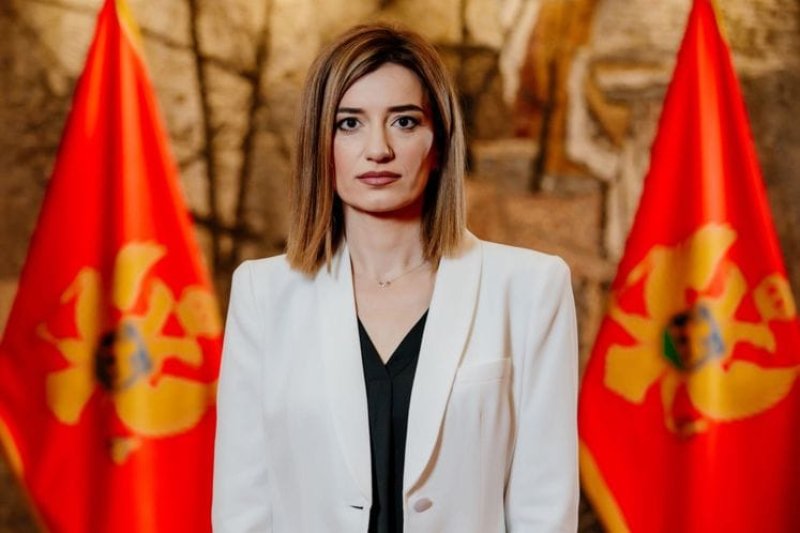EU Enlargement, a Rocky Road
“It is to be expected that the enlargement of the EU towards WB will remain one of the priorities in this mandate of the European Commission, but it is also imperative to send a message that it is possible for the EU to have more members during this period,” has said the former deputy Prime Minister of Montenegro and political analyst, Jovana Marovic.
This is the opinion of Ms. Marovic in an exclusive interview with Albanian Daily News which focused on the issue of the WB accession process after the European parliamentary elections during which the right-wing parties recorded a better result in these elections. But, according to her, the composition of the European Parliament, the majority, will not be significantly different either. “The strengthening of the (extreme) right-wing parties in some member states, as you mentioned France and the Netherlands, could have consequences on enlargement. That’s why a political approach should be devised at the level of the Union that will transform the states and bring them closer to the EU.”
According to ex-PM, Montenegro has a chance to join the EU by 2030, and the recently received interim benchmark assessment report (IBAR) within chapters 23 and 24 and at the same time the closing benchmarks for these chapters, which enable the country to move into the phase of closing the chapters which are ready to be closed, are reasons for optimism. However, the political analyst saw some obstacles in this endeavor among which the recent tensions with Croatia, which could slow down the negotiation process, as well as the composition of the parliamentary majority, which includes pro-Russian parties, and the political situation in the country.
Asked about the future the relationship between Europe (EU) and the US after the November presidential elections in that country political analyst Marovic was of the opinion that the right-wing parties in all European countries would like to see Trump as president, but the EU and NATO would not, since that would significantly change established strategies, especially the one towards Ukraine. “So, hopefully, Trump will not win the elections in the US,” said former Deputy Prime Minister of Montenegro and political analyst Jovana Marovic in the following interview:
Albanian Daily News: Thank you for sharing some opinions with Albanian Daily News after the result of the EP elections is sealed and the first question is how the new bureaucracy in Brussels will proceed with the WB enlargement process as currently everything seems at standstill? Will countries like the Netherlands, France… continue their traditional ‘thumbs down’ on the concrete steps to make possible the accession of the Western Balkan countries in 2030?
Ex-deputy PM Jovana Marovic: The conclusions of the June European Council (EUCO) on candidates for leadership positions in the EU are expected, and despite the fact that the right-wing parties recorded a better result in these elections, the composition of the European Parliament, the majority, will not be significantly different either. It is to be expected that the enlargement of the EU will remain one of the priorities in this mandate of the European Commission, but it is also imperative to send a message that it is possible for the EU to have more members during this period. It is of particular importance which country will receive the portfolio of Commissioner for Enlargement and it should be a country which advocates enlargement and that will play a constructive role in this process. The strengthening of the (extreme) right-wing parties in some member states, as you mentioned France and the Netherlands, could have consequences on enlargement. That’s why a political approach should be devised at the level of the Union that will transform the states and bring them closer to the EU.
- There are projections that Montenegro will be the only country to be invited to join the club in 2030? What do you think of this?
- Montenegro has a chance to join the EU by 2030, and the recently received interim benchmark assessment report (IBAR) within chapters 23 and 24 and at the same time the closing benchmarks for these chapters, which enable us to move into the phase of closing the chapters which are ready to be closed, are reasons for optimism. However, the recent tensions with Croatia, which could slow down the negotiation process, as well as the composition of the parliamentary majority, which includes pro-Russian parties, and the political situation in the country, can be an obstacle. It is also of crucial importance that the EU is ready for new members and that Montenegro is focused on reforms with a parliamentary majority that is civic and European, which is not the case at the moment.
On the one hand, the negotiations are progressing in a technical sense and Montenegro can now close the negotiation chapters which are ready to be closed. On the other hand, accession negotiations also have a political component and conflicts with member states are a major issue, which is best demonstrated by the "case of North Macedonia". Likewise, in the new EU strategic agenda for the period 2024-2029, although the enlargement process is called "investing in peace, security, stability and prosperity", gradual integration is stated as the dominant model, which does not suit Montenegro and therefore reforms in the country must take place rapidly.
-The far-right has made a strong return in the EU legislative as the results of the elections show. Which are the reasons (there were predictions on this earlier) and the perspectives of its performance as well as the position of other traditional political forces which are losing ground?
- The recent elections for the European Parliament pointed to trends in the EU member states and showed that more has to be done to strengthen the values on which the Union rests. Therefore, the strengthening of democracy at all levels must go hand in hand, including the countries of the Western Balkans and all candidate countries for membership.
- How do you see the relationship between Europe (EU) and the US after the November presidential elections in that country? Will the far-right be happy seeing Trump in the White House?
- The right-wing parties in all European countries would like to see Trump as president, but the EU and NATO would not, since that would significantly change established strategies, especially the one towards Ukraine. So, hopefully, Trump will not win the elections in the US.
-In the meantime, where is Western Balkans heading as old and new enmities are alive and some worsening like the one between Kosovo and Serbia, while the situation in some countries is not good both economically and politically (Bosnia-Herzegovina, North Macedonia, Albania, Montenegro).
- The situation is not encouraging in any country of the Western Balkans while nationalism and populism remain burning issues. The Growth Plan which the EU designed for these countries and recently started to implement is an important instrument, but it is focused on the economy and as such has many shortcomings, mostly because it does not offer enough measures to strengthen the rule of law and it is not offering the EU perspective clearly. For this reason, it should be followed by a political plan while conditionality in the integration process must be linked with the Growth Plan and sanctioning and rewarding consistently implemented.
The EU should develop road maps for all Western Balkan countries until 2030 and clearly state what can be achieved by that date. Instead, a new mechanism was offered, which is reported separately, which further burdens the already burdened administration in both Brussels and the Western Balkan countries, while absorption capacities are also problematic.
The prospect of membership is not helped by the fact that there is no progress in solving bilateral disputes, and the tensions between the countries are not calming down. There is no vision from either side.
-To conclude, let us touch on the ongoing Russian aggression in Ukraine. Western assistance is keeping the Ukraine army fighting while the French President spoke of eventual ‘European Boots’ on the ground in Ukraine. What do you think of an intensified Western involvement in Ukraine as Putin has often threatened the use of nuclear weapons in what he has called ‘aggressive’ acts of the West against Russia?
- There is no doubt that the war in Ukraine has a strong impact on the situation in Europe. Hence, it is of particular importance that the support of the West does not wane, politically and militarily, as well as that the pro-Western space is unified. This also implies the inclusion of all who want to be part of it. / ADN














